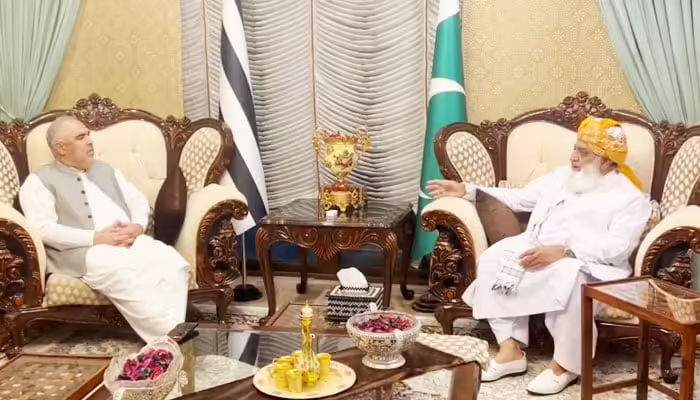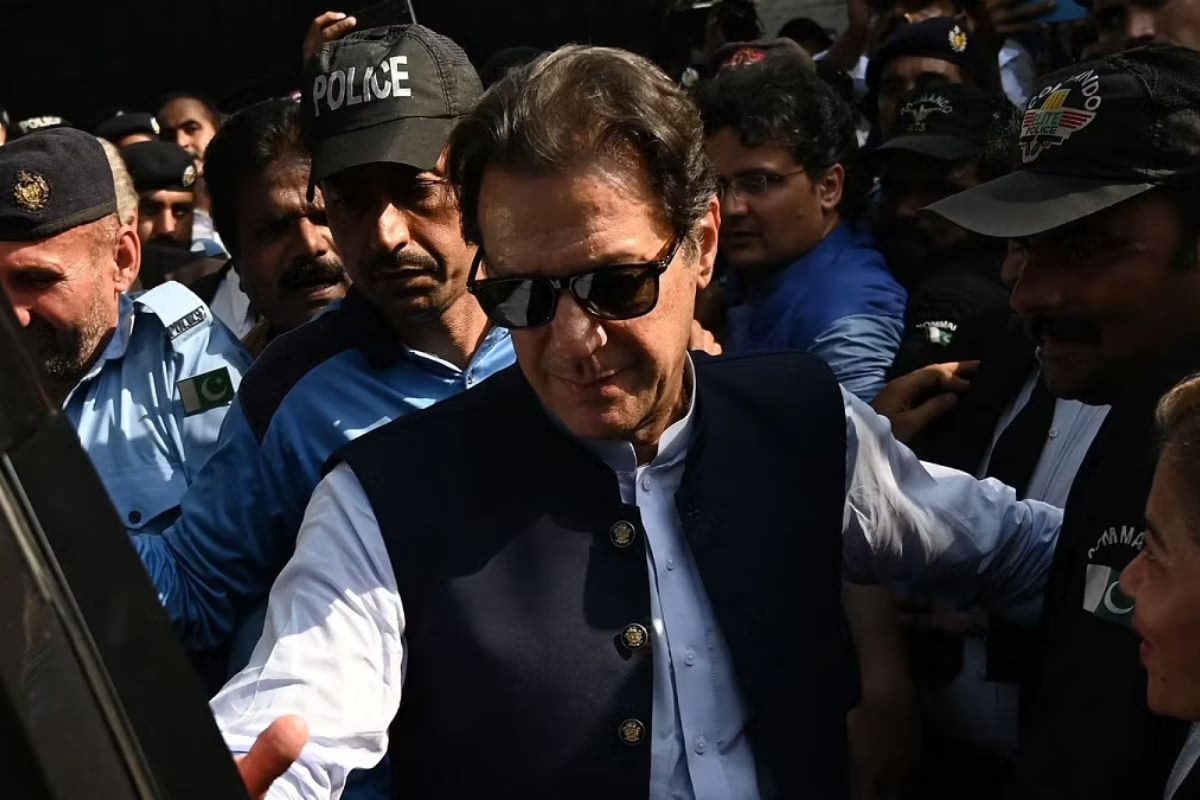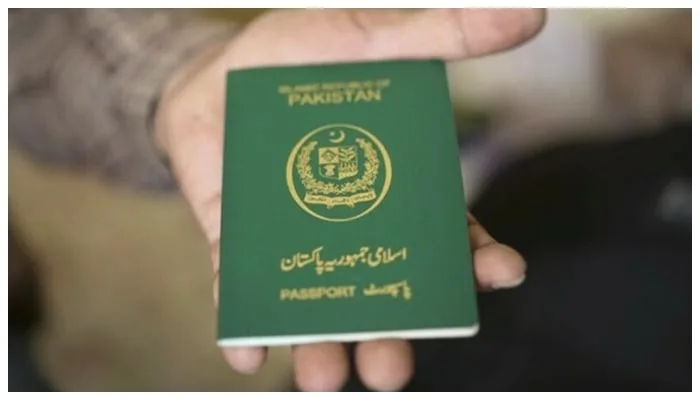On Saturday, the Pakistan Tehreek-e-Insaf (PTI) strongly criticized Jamiat Ulema-e-Islam-Fazl (JUI-F) chief Maulana Fazlur Rehman for what it sees as his legitimization of the ruling regime. This comes after Maulana Fazl made a notable shift in his position on the Pakistan Muslim League-Nawaz (PML-N)-led coalition government. Despite having previously condemned the coalition, Fazl has now expressed a willingness to collaborate with them in the National Assembly and Senate, especially on national issues like counter-terrorism.
Khyber Pakhtunkhwa (KP) government spokesperson Barrister Muhammad Ali Saif, representing PTI, made the party’s stance clear during an appearance on Geo News’ program ‘Naya Pakistan.’ “We never needed [Maulana Fazl’s] support, neither in the past nor today,” Saif said, pointing out that Fazl’s apparent softening of his criticism of the ruling coalition was politically opportunistic.
This statement comes in response to Maulana Fazlur Rehman’s recent comments in the National Assembly, where he urged cooperation between the government and the opposition to address national challenges, especially terrorism. The JUI-F chief had previously accused the PML-N-led government of coming to power through manipulated elections on February 8, 2024, and claimed that the election results were rigged. However, in a shift, he acknowledged the need to accept the current parliament, regardless of whether it was formed through “Form 45 or 47”—both referencing different forms involved in election result reporting—insisting that it must now be used to resolve pressing national issues.
Historically, Maulana Fazl has been one of the strongest critics of the PML-N and Pakistan Peoples Party (PPP). Before the 2024 elections, Fazl was a crucial ally of both the PML-N and PPP, heading the Pakistan Democratic Movement (PDM), a multi-party opposition alliance. This alliance played a key role in the ouster of former Prime Minister Imran Khan through a no-confidence vote in 2022.
However, following the February 2024 elections, Maulana Fazl’s stance appears to have softened. This shift has coincided with efforts by key figures in the coalition government, including former President Asif Ali Zardari and Prime Minister Shehbaz Sharif, to address Fazl’s concerns. Both leaders held separate meetings with the JUI-F chief, reportedly offering him significant political positions to secure his support. Reports suggest that Fazl’s family members were promised key roles, with his brother allegedly offered a Senate seat and another relative expected to be made the Governor of Khyber Pakhtunkhwa.
The shift in Fazl’s position has not gone unnoticed by the PTI, which has traditionally been a rival to the JUI-F, especially in KP. Barrister Saif, while speaking on the political talk show, alleged that Fazl’s change of heart was motivated by personal gain rather than national interest. “He [Fazl] always chooses the side where he sees personal benefit,” Saif remarked, adding that Fazl’s influence in Khyber Pakhtunkhwa had significantly diminished under PTI’s government. “Fazlur Rehman’s politics has ended in KP. He doesn’t have enough seats to even convene an assembly session, even with the support of all opposition members,” Saif said. He further claimed that Maulana Fazl was eyeing political positions in KP, such as the governorship and two Senate seats.
According to the PTI spokesperson, Fazlur Rehman’s apparent compromise with the ruling coalition was primarily to secure benefits for his family members. “His brother will become a senator, and another relative will get governorship,” Saif alleged, referring to the reported political appointments promised to the JUI-F chief.
The PTI spokesperson also expressed disappointment with Fazl for abandoning his previous objections to the February 8 elections. “We backed Maulana’s objections regarding the Election Commission of Pakistan (ECP) and the rigged February 8 elections,” Saif stated. “But now, he has accepted this system.”
The recent political developments mark a significant moment in the relationship between the PTI and the JUI-F. Traditionally fierce rivals, the two parties had found common ground earlier in 2024 in their shared concerns over alleged election result manipulation. This led to some cooperation between them in the National Assembly and Senate in August, with both parties expressing dissatisfaction with the election process. However, the current shift in Maulana Fazl’s rhetoric, particularly his willingness to work with the ruling PML-N-led government, has drawn strong criticism from the PTI.
Despite the growing tensions, Fazlur Rehman has called on both the government and the opposition to unite in the face of the country’s pressing issues, particularly the challenge of terrorism. In his recent speech in the National Assembly, the JUI-F leader reminded both sides that parliament remains the supreme institution in the country and should be the forum for resolving national issues.
With the general elections looming, the shifting alliances and evolving rhetoric among Pakistan’s political players underscore the dynamic nature of the country’s political landscape. Whether Maulana Fazl’s newfound cooperation with the ruling regime will last or revert to opposition tactics remains to be seen, but for now, the PTI has made its discontent with Fazl’s shifting political stance abundantly clear.



